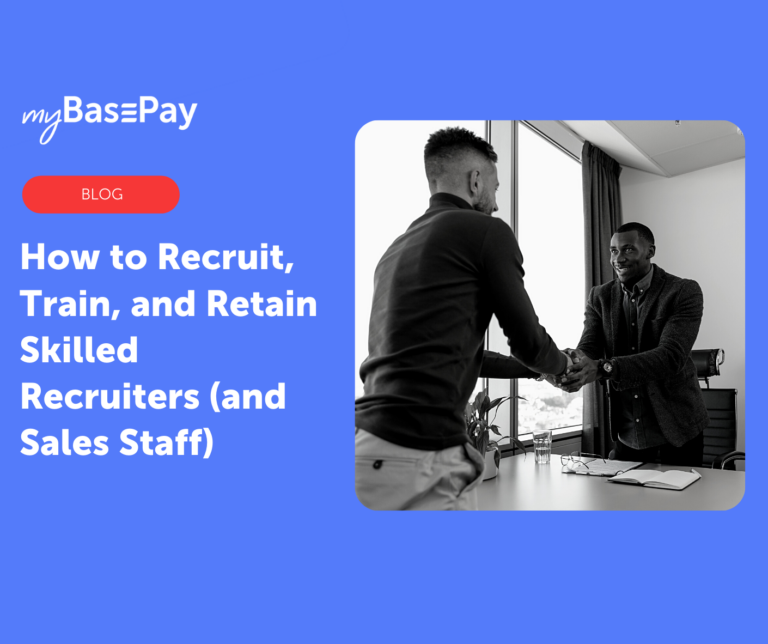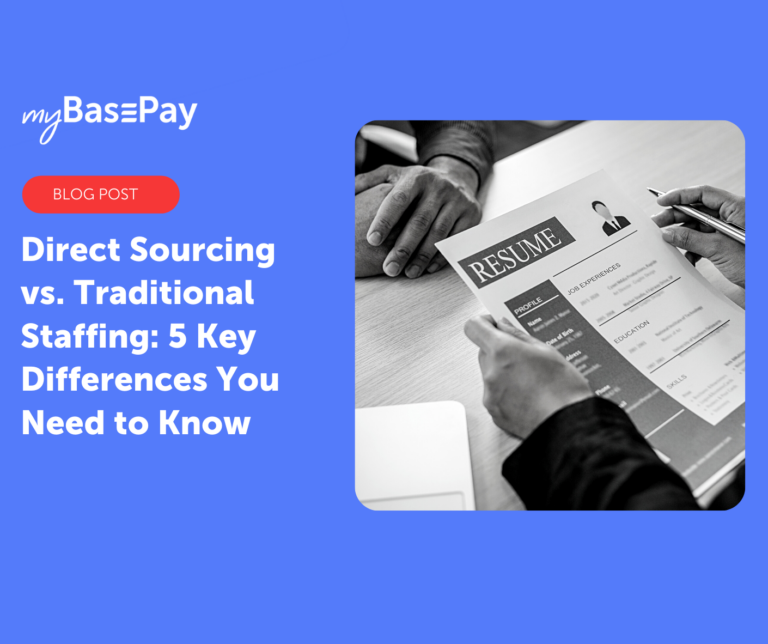6 Proven Tips for Staffing Agencies Looking to Respond to Technological Disruption
Technological disruption has affected every industry — including staffing. Despite this, many staffing agencies continue to lag, relying on “tried and true” strategies and practices that are no longer as relevant or efficient in the digital age.
Staffing agencies that wish to thrive in the years to come shouldn’t fear technological disruption. They should embrace it and be proactive in seeking out new ways to use technology to improve their work.
The proper response to technological disruption can enhance outcomes for businesses, job candidates, and (most importantly) the agencies that serve them.
-
Address the Changing Workforce
One of the most significant disruptions the staffing industry has experienced is the rise of the remote worker. Remote workers, often referred to as the “agile workforce,” make up a growing proportion of almost every company.
Shifting expectations among employers and workers have created an environment where fully remote contract workers and hybrid employees who work part-time at home and part-time in the office are the norm.
All of this is fueled by cloud technology that makes remote work possible in the first place. Many staffing agencies have also experienced this shift to a mix of remote and in-person staff. Proactive staffing agencies should be prepared to help clients adapt to this new workforce mix and make this a point of emphasis in their recruiting strategies.
-
Embrace Multiple Sources of Talent
With multiple types of talent, each making up a sizable portion of the workforce, staffing agencies must use technology to expand their methods for sourcing talent. Online platforms such as Upwork and Fiverr have entirely changed how many smaller businesses find contract workers. LinkedIn has opened up new avenues for recruiting top talent.
This has created a world where talent is diversified across platforms rather than focused on a single, central location. Staffing agencies must be willing to expand to new talent acquisition marketplaces, many of which are directly tied to the technological disruptions that have contributed to the rise of remote work.
When agencies broaden their net, so to speak, and meet candidates where they are, they will be better positioned to fill projects for their clients quickly.
-
Use AI to Keep Candidates in the Loop
2021 has seen an ongoing labor shortage as employers struggle to fill open positions. As of November 2021, 42 states have more available jobs than there are unemployed individuals.
In a candidate’s market, employers cannot afford to be complacent. A lack of communication with a top candidate could easily cause an employer to miss out. Staffing firms can provide a competitive edge by using AI to keep candidates in the loop while making a decision.
In an interview with the Ivy Podcast, Terri Gallagher, founder of Gallagher and Consultants, explained, “Candidates are ghosting companies. Now, if they don’t hear something in three days — if you don’t have bots going out and telling candidates, ‘Hey, you’re at least in the mix’ or, ‘We’re chatting with you,’ they’re going to move on. So the other piece of the AI [is that with] better candidate matching, things are happening a lot faster.”
-
Simplify Crucial Tasks With Back Office Support
No matter how large your staffing agency is, there are only so many hours in a day. Staffing is filled with menial, time-consuming tasks that are nevertheless essential to your work.
Data entry, report creation, invoicing, payroll processing, benefits administration, and tax reporting are just a few of the tasks that can draw your attention away from recruiting and filling projects for clients.
Back office solutions are more readily available than ever before, helping to streamline these and other essential tasks so your team can focus their efforts on activities that directly contribute to the bottom line.
Working with an employer of record (EOR) can even ensure that all compliance issues are handled appropriately — something that has become increasingly complex with many companies now utilizing a mix of full-time employees and contractors.
-
Use Data to Analyze and Improve Performance
Digital software can completely transform your team’s performance by giving you unbiased, data-driven insights. With the right software, you can identify bottlenecks and inefficiencies in your processes, allowing you to make vital changes, so you don’t fall behind the competition.
As Terri Gallagher noted in her podcast interview, “You need the fundamentals if you’re not even having ATS [applicant tracking system] to track your internal recruiters’ performance and evaluating your sourcing channels for performance, […] Maybe start there before you get into building talent clouds for what was right. […] think about what you want to do with your business? And, you know, what do you need first?”
By aligning data-driven insights with your company’s goals, you can track the performance metrics that matter most to improve your team’s output.
-
Don’t Be Afraid to Retrain Your Team
You’ve undoubtedly spent lots of time and effort building up a reliable staffing team that you can count on to consistently deliver results for your clients. However, the fact remains that many of these individuals don’t have the knowledge to work with new tech tools.
This doesn’t mean you should dump your tried and trustworthy staff and replace them with younger, more tech-savvy talent. Hard decisions may need to be made, but generally speaking, most staffing firms will be better served by training their current team on using the technology that will enhance their work.
According to SHRM, it typically costs a company six to nine months of an employee’s salary to replace that individual. Providing quality training will likely be a far more cost-effective investment that helps you retain your top talent.
Technological disruption has undeniably introduced new challenges for staffing agencies big and small. But current tech trends are hardly the first — or last — a market change that will disrupt the work of staffing agencies. Those who embrace technological disruption and use it to enhance their work will thrive, while others get left behind.
How are you responding to technological disruption?
Author: Cesar Romero
Cesar is the Head of Marketing at myBasePay, where he’s responsible for overseeing the company’s content marketing, community, and partnerships strategy. He also co-hosts The Ivy Podcast where he interviews executives from Fortune 500 companies on executive leadership. When he’s not helping startups with marketing and community strategy, you can find him paying it forward by serving as a mentor for leading organizations like StartingBloc, Hive, and Global Citizen Year.






